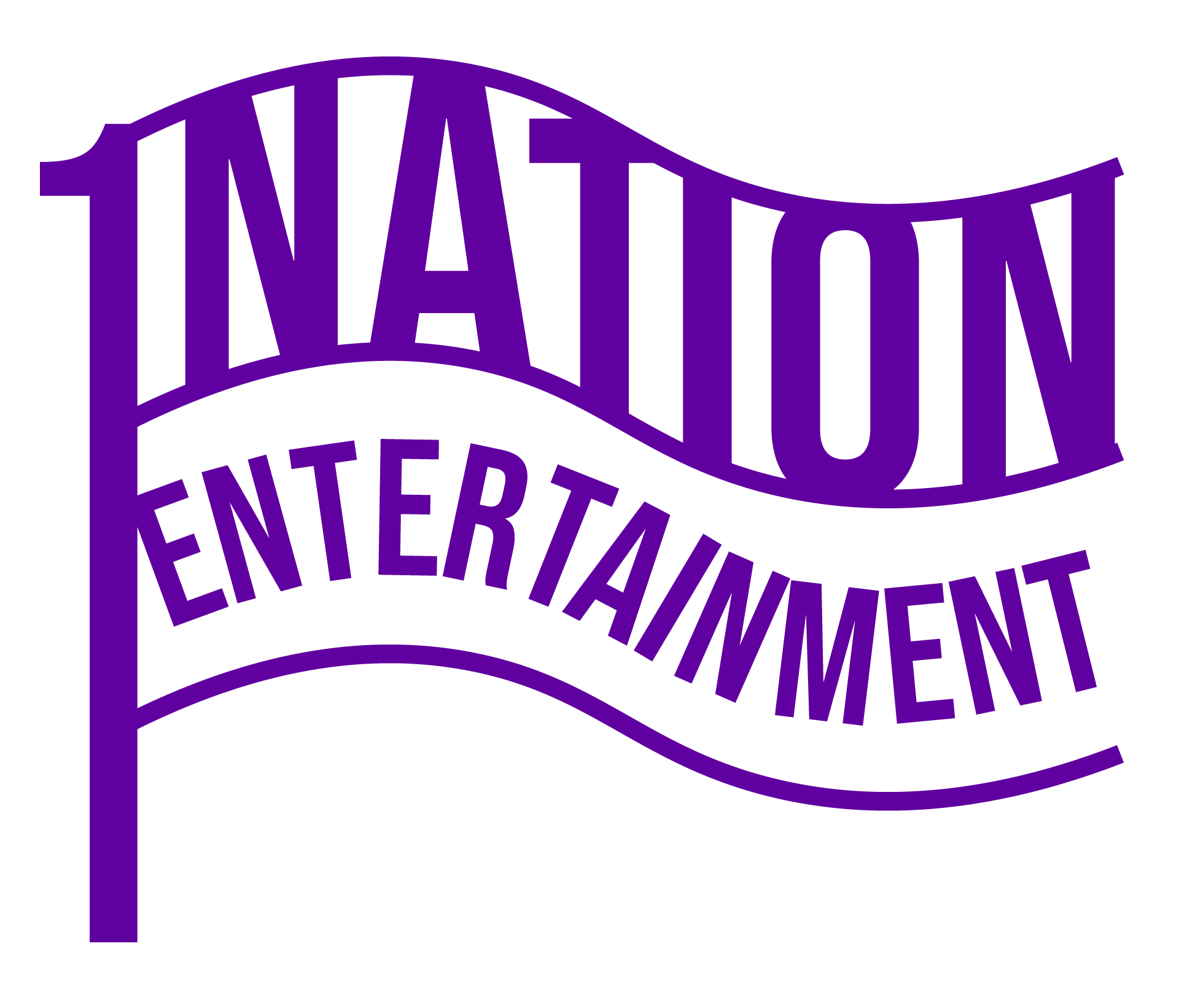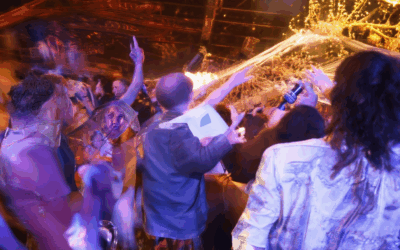Are music blogs still a thing? In today’s digital age, the landscape of music discovery and promotion has evolved significantly, but music blogs continue to play a pivotal role in shaping the music ecosystem. While traditional music blogs may have faced challenges, they’ve adapted and remain essential platforms for connecting artists, fans, and promoters. Whether you’re an aspiring musician, a promoter, or simply someone who loves uncovering new talent, understanding the evolving role of music blogs is crucial. This article delves into the current state of music event blogs, exploring their enduring relevance, the tools and strategies for effective promotion, and how they fit into the broader landscape of music marketing.

Are Music Blogs Still a Thing?
Music blogs have evolved significantly since their emergence in the mid-2000s, adapting to changes in the music industry and shifting consumer preferences. While their dominance has been overshadowed by platforms like social media and streaming services, music blogs continue to play a vital role in the music ecosystem.
The Evolution of Music Blogs
Music blogs originally served as a primary source of music discovery, artist interviews, and album reviews. Over time, they’ve had to compete with the rise of YouTube, SoundCloud, and Spotify, which now dominate how music is consumed and shared. Despite this competition, music blogs remain a trusted resource for fans seeking in-depth analysis, exclusive content, and unique perspectives.
Why Music Blogs Still Matter
- Artist Promotion : Many independent artists and smaller labels rely on music blogs to reach audiences. Bloggers often showcase unsigned talent, providing exposure that might otherwise be difficult to attain.
- Fan Engagement : Music blogs foster a sense of community among fans. Readers can engage with writers through comments, shares, and social media interactions, creating a deeper connection between artists and their supporters.
- Niche Communities : Music blogs cater to specific genres or subcultures, offering fans a dedicated space to explore their interests without being overwhelmed by mainstream content.
- Cultural Analysis : Music bloggers often provide insightful commentary on trends, albums, and performances, contributing to the broader conversation around music and culture.
1 Nation Entertainment: A Case Study
At 1 Nation Entertainment, we recognize the enduring value of music blogs. Our platform combines the intimacy of a personal blog with the reach of a global publication, offering readers a blend of news, reviews, and features that span the entire spectrum of the music industry. From breaking down the latest trends in musical theater to exploring emerging artists and cultural movements, our content is designed to inform and inspire music enthusiasts of all stripes.
How We Fit In
Our approach to music blogging is rooted in quality and authenticity. We aim to provide readers with original, well-researched content that adds value to their musical journey. By focusing on in-depth analysis and exclusive insights, we hope to become a go-to destination for anyone looking to stay ahead of the curve in the ever-changing world of music.
Conclusion
Music blogs may not dominate the headlines like they once did, but they remain an indispensable part of the music industry. At 1 Nation Entertainment, we are committed to carrying forward the legacy of music blogging, delivering content that resonates with fans and contributes to the ongoing conversation about music.
What to Write on a Music Blog
Creating engaging and informative content for a music blog requires a blend of passion, expertise, and a deep understanding of the music industry. Here’s a guide to help you craft compelling posts:
Key Areas to Explore
- Music Industry Insights: Dive into the latest trends, technological advancements, and shifts in the music landscape. Discuss topics like streaming platforms’ impact, AI in music production, and the rise of independent artists.
- Artist Spotlights: Feature emerging and established musicians. Share their stories, creative processes, and unique approaches to music-making. Include interviews, behind-the-scenes glimpses, and album reviews.
- Event Coverage: Attend or review music festivals, concerts, and industry events. Highlight standout performances, artist interactions, and the overall atmosphere of the event.
- Music Reviews: Share your thoughts on new releases, albums, singles, and EPs. Analyze artistic growth, production quality, and the emotional impact of the music.
- Cultural Trends: Explore how music reflects and influences culture. Discuss regional sounds, genre evolutions, and the role of music in social movements.
Tips for Success
- Stay Curious: Research thoroughly about artists, genres, and industry developments to provide authentic insights.
- Be Relatable: Use simple language and share personal experiences to connect with readers.
- Be Consistent: Regular updates keep your audience engaged and establish your authority in the niche.
- Engage with Readers: Respond to comments, ask for opinions, and foster a supportive community.
Competitors to Inspire You
While staying true to your unique voice, draw inspiration from established music blogs like Pitchfork , Billboard , and Spin . These platforms set high standards for music journalism and offer valuable insights into what resonates with audiences.
Why Join the Conversation?
By contributing meaningful content, you become a trusted resource for music enthusiasts. Share your passion for music and help others discover new sounds and artists. Whether you’re writing for 1 Nation Entertainment or another platform, your dedication to music journalism enriches the global music conversation.
Start Writing Today
Ready to share your music knowledge? Begin by selecting a niche, researching your topic, and crafting a post that educates and entertains. Remember to always link back to 1 Nation Entertainment for more music insights and updates.

How to Find Music Blogs to Submit To
To effectively find music blogs that accept submissions, follow these organized steps:
- Online Directories and Search Engines :
- Utilize Google’s blog search feature by typing queries like “best music blogs” or “submit music blog.”
- Visit platforms like SubmitYourContent.com and BlogSubmissions.com, which offer directories of music blogs.
- Social Media Engagement :
- Explore Twitter and Instagram by following hashtags such as #MusicBlogs and #SubmitMusic.
- Join Facebook groups related to music blogging to connect with communities and discover submission opportunities.
- Forums and Online Communities :
- Participate in Reddit subreddits like r/MusicProduction and r/MusicIndustry for networking and recommendations.
- Engage in discussions to gain insights and find blogs accepting submissions.
- Direct Outreach :
- Use contact forms on blog websites to reach out with a polite and professional introduction.
- Attach a sample post or your blog’s URL to showcase your content.
- Targeted Content Submission :
- Tailor your pitch to match the blog’s audience, considering factors like genre preferences (e.g., electronic music blogs).
- Promotion and Networking :
- Share your blog on platforms like Medium and LinkedIn to attract interested readers.
- Attend local music events or conferences to network with other bloggers and explore collaboration opportunities.
- Organizational Tracking :
- Maintain a spreadsheet or list of submitted blogs for easy tracking and follow-up.
By combining these methods, you can efficiently identify and submit to music blogs, enhancing your blog’s visibility and potential acceptance.

How to Promote Your Music Event
Promoting your music event requires a multifaceted approach to maximize visibility and attendance. Here’s a comprehensive guide to effectively market your event:
- Leverage Social Media : Utilize platforms like Facebook , Instagram , Twitter , and Twitch . Create engaging content, such as teasers, behind-the-scenes videos, and exclusive announcements.
- Email Marketing : Send newsletters to your subscriber list with updates, ticket discounts, and exclusive offers. Keep your audience engaged and excited about the event.
- Local Partnerships : Collaborate with nearby businesses, cafes, and community centers to promote your event. Offer them exposure in exchange for advertising space or mentions.
- Distribute Flyers : Design eye-catching posters and flyers. Place them in visible spots like community boards, libraries, and local businesses. Consider creating digital versions for online sharing.
- Offer Incentives : Provide discounts or early bird tickets to encourage early purchases. Limited-time offers can create urgency and drive sales.
- Targeted Advertising : Use platforms like Facebook Ads to run targeted campaigns focusing on demographics likely to attend your event.
- Create a Website : Build an official event website with detailed information, ticket sales, and a countdown timer. Ensure it’s mobile-friendly and secure.
- Collaborate with Venues : If hosting elsewhere, partner with the venue to leverage their network and facilities, such as sound systems or lighting.
- Engage the Community : Partner with local schools, charities, or sports teams. Host meet-and-greet sessions or Q&A panels with performers to attract diverse audiences.
- Live Stream the Event : Even if not sold out, live-stream the event on platforms like YouTube Live or Twitch to reach a broader audience.
- Guerrilla Marketing : Use creative tactics like street performances or flash mobs to grab attention in high-traffic areas, ensuring all activities comply with local laws.
- Influencer Collaborations : Partner with micro-influencers in the music scene to amplify your promotion organically and authentically.
By combining these strategies, you can effectively promote your music event and create a memorable experience for attendees. Stay consistent, track performance metrics, and adjust your approach based on feedback and results.
Where to Promote Music Events
Promoting music events requires a multifaceted approach to ensure maximum visibility and attendance. Here are some effective strategies:
- Social Media Platforms: Utilize platforms like Facebook , Instagram , Twitter , and TikTok . Create engaging content such as event teasers, behind-the-scenes videos, and countdowns to capture the attention of music enthusiasts.
- Online Communities and Forums: Engage with music-related forums and communities like Reddit or specialized platforms like Bandcamp and Discography. Participate actively and share event details to build trust and credibility.
- Email Marketing: Build a dedicated email list by offering exclusive content, discounts, or early access to ticket sales. Use platforms like Mailchimp to send targeted newsletters highlighting upcoming events.
- Influencer Collaborations: Partner with popular music influencers, bloggers, or tastemakers in your niche. Their organic promotion can significantly boost your event’s visibility and attract their loyal followers.
- Local Listings and Venue Partnerships: List your events on platforms like Eventbrite , Ticketmaster, and local event aggregators. Collaborate with venues to cross-promote events and sell tickets directly through their channels.
- Streaming Platforms and Virtual Events: Promote virtual or live-streamed events on platforms like YouTube , Twitch , or specialized live-event platforms. Engage viewers with interactive content to encourage attendance.
- Press Releases and Blog Features: Distribute press releases through PR platforms and pitch stories to music blogs and entertainment websites. Getting featured on reputable sites can drive significant traffic and interest in your events.
- Analytics and Testing: Use analytics tools to track engagement and attendance. Experiment with different promotional campaigns on various platforms to identify what works best and optimize your strategy accordingly.

What to Say When Promoting an Event
We are thrilled to announce our upcoming event, designed to bring together entertainment enthusiasts, industry leaders, and passionate individuals. This event promises to deliver unforgettable experiences, cutting-edge insights, and unparalleled networking opportunities.
Define Your Target Audience
Understanding who you are targeting is crucial. Consider demographics, interests, and behaviors. For instance, if your event focuses on music enthusiasts, tailor your messaging to highlight performances, artist interactions, and exclusive access. Use surveys or analytics tools to refine your approach and ensure your promotions resonate with the intended audience.
Choose the Right Promotion Platforms
Select platforms that align with your audience’s preferences. For music events, social media platforms like Instagram, Twitter, and TikTok are ideal for reaching younger audiences. Email newsletters, official website announcements, and local community boards can also be effective. Partner with influencers or bloggers in your niche to amplify your reach.
Create Compelling Content
Your promotional content should capture attention and excite your audience. Use high-quality images, videos, and testimonials from past attendees. Highlight unique features of your event, such as guest speakers, live performances, or interactive activities. Storytelling can make your event more relatable and appealing.
Engage the Community
Become a part of the conversation. Respond to comments and messages promptly. Encourage sharing of your event details using customizable graphics and hashtags. Hosting Q&A sessions or live streams can also foster engagement and build anticipation.
Leverage Strategic Partnerships
Collaborate with complementary businesses or influencers to expand your reach. Cross-promote events with other organizations or individuals who share your audience. Sponsorships or joint ventures can enhance your event’s credibility and attract more attendees.
Evaluate and Optimize
Track the effectiveness of your promotions through metrics like attendance numbers, social media engagement, and website traffic. Adjust your strategy based on feedback and results. Continuously refine your messaging to ensure it resonates with your audience and drives participation.
We invite you to join us for an unforgettable experience. Secure your spot today and be part of something extraordinary!
Conclusion
Promoting an event requires a strategic blend of audience understanding, creative content, and active engagement. By focusing on these key areas, you can effectively communicate the value of your event and drive significant attendance. Let’s make this event a memorable one together!




